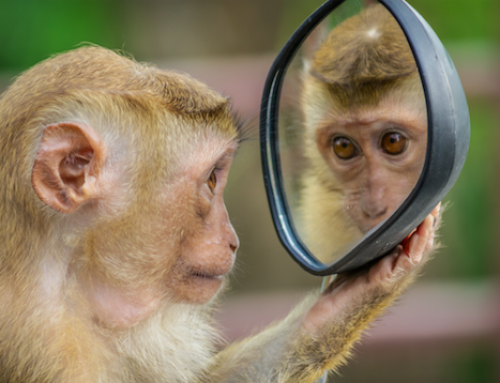I bet you have been overthinking finding your purpose and passion in life, to the extent you can barely stand to look at the words ‘purpose’ and ‘passion’ anymore?
If yes, you’ve landed in the right place. I myself was going around circles in my head for years, trying to find out what this purpose and passion of mine is.
12 years and 3 businesses later, I now spend most of my time helping other frustrated professionals answer this very question. In this article I’ll shed some light on what you can do if you want to stop the endless thought-loops and instead make some real advances in finding your purpose and passion.
Make your brain work for you, not against you
One of the biggest mistakes people make when trying to find their passion, is to try to think in an analytical and focused manner. Doing this uses the prefrontal cortex of your brain, and this is the kind of thinking that’s mostly required throughout school.
Unfortunately, it isn’t the kind of thinking that encourages creative or big picture thinking. To switch over to this ‘diffused’ rather than ‘focused’ way of thinking, we have to do something which might seem counter-intuitive. Rather than ‘focus’, we have to allow our mind to wander, which enables it to create new neural connections. This activity happens all over the brain, not just in the prefrontal cortex.
Doing activities like walking, running, daydreaming, or something else you really enjoy such as painting, playing computer games etc., is the best way to encourage diffused thinking.
Thomas Edison, inventor of the lightbulb, and Salvadore Dali, the impressionist painter, both used an interesting technique to produce some of their most creative ideas – they would get ready to daydream, and leave something like a key in their hand. They would then start relaxing, and the moment they fell asleep, the key would fall on the floor and they would wake up due to the noise. In those moments, they often experienced new, bright ideas, big and small, and they always had a notebook ready to write the ideas down before they forgot.
So, the lesson is: if you’re trying to figure out what your passion and purpose is by treating it like a logical problem, you might stay stuck. Don’t discount the activities that allow for diffused thinking, so if you have a hobby you enjoy, but you’ve stopped pursuing it because you logically can’t see how it will turn into a purposeful career – start doing it again. Not only will it make you happier and more relaxed, but your brain is a lot more likely to make new connections, some of which might result in ‘aha moments’ that will get you closer to finding your purpose.
Overcome your limiting beliefs
It’s fascinating and scary how many beliefs we all hold about ourselves and about the world, which are plain false. We often adopt these beliefs when we’re children or adolescents, and then we subconsciously hold on to them for years, always believing them to be true.
Typical examples include ‘I’m bad with numbers’, ‘I hate speaking in front of an audience’ ‘I hate sales’ or ‘I’m too old to find my passion now’.
What do you think one of your limiting beliefs could be? For a long time, mine was about being bad with numbers as well as being a bad public speaker.
More often than not, rather than truths, these beliefs are likely to appear true because of being self- fulfilling prophecies. When we believe something to be true, we base this on the limited information we have experienced, and going forward, we only ever notice the evidence that confirms this belief, while ignoring any evidence that demonstrates the opposite.
Going back to how the brain works – we’re naturally wired to hold on to beliefs rather than spend mental energy (which from an evolutionary perspective is very expensive) on integrating opposing as well as overcoming false beliefs. It used to be a useful survival mechanism thousands of years ago, but in the modern age, it is the opposite. Limiting beliefs are seriously holding us back from seeing opportunities and exploring interesting options, that could have helped us find our passion and purpose.
How do you overcome these limiting beliefs?
The first step is to simply recognise and acknowledge that a particular belief might be a limiting belief. This is easier said than done, and it’s best done with a coach who has experience asking the right questions and getting to the root cause of the limiting belief. You then need to verify the belief, and eventually start building new beliefs that take you in the direction you want to go.
Clarity comes from action, not thought
This lesson is key, and it’s frustrating how many talented and intelligent people get this wrong:
Clarity on finding your purpose and passion comes from doing, not from thinking. In other words, passion and purpose are the result of immersing yourself in something, not the other way round.
Ironically it’s often the clients of mine who are most sharp and analytical, who find this concept difficult to believe. Add to this the limiting beliefs they hold about themselves, and the result is total stuckness.
Countless inspirational business people and thought leaders found their passion and purpose late in life. In my case, as a late teen I hated all forms of exercise, and in hindsight this fact was largely due to a couple of limiting beliefs. I always got bad grades in PE (because I don’t have good hand-eye coordination, which was the only thing that was graded in PE lessons). I furthermore had to cycle to tennis lessons on an old bicycle which was falling apart, and hence this was overall a pretty unpleasant experience. As a result, I told myself that exercise just isn’t my thing.
Fast forward 15 years and I’ve run a marathon and now do various forms of exercise like climbing and running almost every single day. I can’t emphasize the importance of trying to expand your areas of interest and ‘talent’, as you can absolutely develop skills and talents that you didn’t think you had.
Starting this process is about trial and error. You try something out, and if it doesn’t stick, you try something else. To all the analytical people out there – unfortunately you can’t just create a masterplan, follow it and expect to find your goal after you’ve done xyz.
Once you get this into your head, you’re able to start your learning and exploration journey which can eventually reveal interests, passions and purpose that were hidden before.
Conclusion
Finding your purpose and passion requires you to behave in a way that might be quite counter-intuitive, particularly if you’re a very analytical thinker.
Learning more about how your brain works and using this to your advantage, as well as pushing yourself to try out new things, even though you at first can’t see how they will lead to a new passion, are also key.
I’d be happy to have a chat about how we can overcome some of your limiting beliefs, and get you started on an exciting exploratory journey – feel free to message me directly.



Leave A Comment